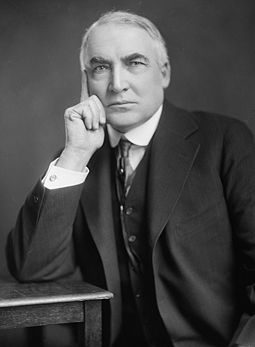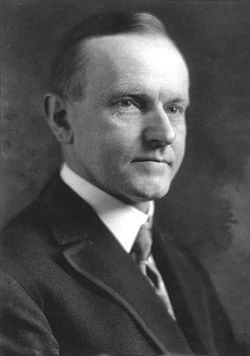| |
Date |
Event(s) |
| 1 | 1898 | |
| 2 | 1913 | |
| 3 | 1914 | |
| 4 | 1916 | - 1916—1916: Compulsory military service introduced in Britain
- Feb 1916—Feb 1916: Battle of Verdun - appalling losses on both sides, stalemate continues
- 24 Apr 1916—24 Apr 1916: Easter Rising in Ireland - after the leaders are executed, public opinion backs
independence
- 21 May 1916—21 May 1916: First use of Daylight Saving Time in UK
- 31 May 1916—31 May 1916: Battle of Jutland - only major naval battle between the British and
German fleets
- 5 Jun 1916—5 Jun 1916: Sinking of HMS Hampshire and death of Kitchener
- 3 Aug 1916—3 Aug 1916: Sir Roger Casement hanged at Pentonville Prison for treason
- 15 Sep 1916—15 Sep 1916: First use of tanks in battle, but of limited effect (Battle of the Somme 1 July to 18 Nov: over 1 million casualties)
- 7 Dec 1916—7 Dec 1916: Lloyd-George becomes British Prime Minister of the coalition government
|
| 5 | 1917 | - 1917—1917: Battle of Cambrai - first use of massed tanks, but effect more psychological than actual
- 1917—1917: Ministry of Labour is established in Britain
- Feb 1917—Feb 1917: February revolution in Russia; Tsar Nicholas abdicates
- 16 Apr 1917—16 Apr 1917: Lenin returns to Russia after exile
- 17 Apr 1917—17 Apr 1917: USA declares war on Germany
- 26 May 1917—26 May 1917: George V changes surname from Saxe-Coburg-Gotha to Windsor (Royal
proclamation on 17 July)
- Jul 1917—Jul 1917: Battle of Passchendaele - little gained by either side (Jul-Nov)
- 7 Nov 1917—7 Nov 1917: 'October' Revolution in Russia - Bolsheviks overthrow provisional government;
Lenin becomes Chief Commissar
- 6 Dec 1917—6 Dec 1917: Halifax (Nova Scotia) Explosion, one of the world's largest artificial non-nuclear
explosions to date: a ship loaded with wartime explosives blew up after a collision,
obliterating buildings and structures within two square kilometres of the explosion
- 9 Dec 1917—9 Dec 1917: British forces capture Jerusalem
|
| 6 | 1918 | - 1918—1918: Vote for women over 30, men over 21 (except peers, lunatics and felons)
- 1918—1918: War of Independence in Ireland
- 18 Jan 1918—18 Jan 1918: Bentley Motors founded
- 8 Mar 1918—8 Mar 1918: Start of world-wide 'flu pandemic
- Jul 1918—Jul 1918: Second Battle of the Marne: last major German offensive in WW1 (Jul-Aug)
- 1 Oct 1918—1 Oct 1918: Arab forces under Lawrence of Arabia capture Damascus
- 11 Nov 1918—11 Nov 1918: Armistice signed
- Dec 1918—Dec 1918: First woman elected to House of Commons, Countess Markiewicz as a Sinn Fein
member refused to take her seat
|
| 7 | 1919 | - 1919—1919: Britain adopts a 48-hour working week
- 1919—1919: Sir Ernest Rutherford publishes account of splitting the atom
- 15 Jun 1919—15 Jun 1919: Alcock and Brown complete first nonstop flight across the Atlantic
- 28 Jun 1919—28 Jun 1919: Treaty of Versailles signed
|
| 8 | 1920 | - 1920—1920: Regular cross-channel air service starts
- 1920—1920: Marconi opens a radio broadcasting station in Britain
- 1920—1920: Thompson patents his machine gun (Tommy gun)
- Feb 1920—Feb 1920: First roadside petrol filling station in UK - opened by the Automobile Association
at Aldermaston on the Bath Road
|
| 9 | 1921 | - 1921—1921: Railway Act in Britain amalgamates companies - only four remained
- 1921—1921: Insulin discovery announced
- 1921—1921: First birth control clinic
- 4 Mar 1921—2 Aug 1923:
 Warren G. Harding U.S. Presidency Warren G. Harding U.S. Presidency
- 19 Jun 1921—19 Jun 1921: Census: Population - England and Wales: 37.9 Million; Scotland: 4.9 Million; N Ireland: 1.25 Million
- 6 Dec 1921—6 Dec 1921: Anglo-Irish Treaty signed in London, leading to the formation of the Irish Free
State and Northern Ireland
|
| 10 | 1922 | - 1922—1922: Law of Property Act - the manorial system effectively ended
- 1 Jun 1922—1 Jun 1922: Royal Ulster Constabulary founded
- Oct 1922—Oct 1922: BBC established as a monopoly, and begins transmissions in November (2LO in
London on 14 Nov; 5IT in Birmingham and 2ZY in Manchester on 15 Nov)
|
| 11 | 1923 | - 1923—1923: Roads in Great Britain classified with A and B numbers
- 1923—1923: Hubble shows there are galaxies beyond the Milky Way
- 1923—1923: First American broadcasts heard in Britain
- 1 Jan 1923—1 Jan 1923: The majority of the railway companies in Great Britain grouped into four main
companies, the Big Four: LNER, GWR, SR, LMSR - lasted until nationalisation in 1948
- 16 Feb 1923—16 Feb 1923: Howard Carter unsealed the burial chamber of Tutankhamun
- 28 Apr 1923—28 Apr 1923: First Wembley cup final (West Ham 0, Bolton 2) - 'I'm Forever Blowing Bubbles ' popular song of the time became the West Ham anthem
- 2 Aug 1923—4 Mar 1929:
 Calvin Coolidge U.S. Presidency Calvin Coolidge U.S. Presidency
- 28 Sep 1923—28 Sep 1923: First publication of Radio Times
|
| 12 | 1924 | - 4 Jan 1924—4 Jan 1924: First Labour government in Britain, headed by Ramsay MacDonald
- 5 Feb 1924—5 Feb 1924: Hourly Greenwich Time Signals from the Royal Greenwich Observatory were
first broadcast by the BBC
- 31 Mar 1924—31 Mar 1924: British Imperial Airways begins operations (formed by merger of four British
airline companies - became BOAC in 1940)
|
| 13 | 1925 | - 1925—1925: Britain returns to gold standard
- 18 Jul 1925—18 Jul 1925: Adolf Hitler publishes Mein Kampf
|
| 14 | 1926 | - 1926—1926: First public demonstration of television (TV) by John Logie Baird
- 1926—1926: Adoption of children is legalised in Britain
- 1926—1926: Kodak produces 16mm movie film
- 1926—1926: Walt Disney arrives in Hollywood
- 21 Apr 1926—21 Apr 1926: Princess Elizabeth born
- 3 May 1926—3 May 1926: General Strike begins. Lasts until May 12 (mine workers for 6 months more)
- 31 Oct 1926—31 Oct 1926: Death of Harry Houdini
|



 Submit Photo / Document
Submit Photo / Document
